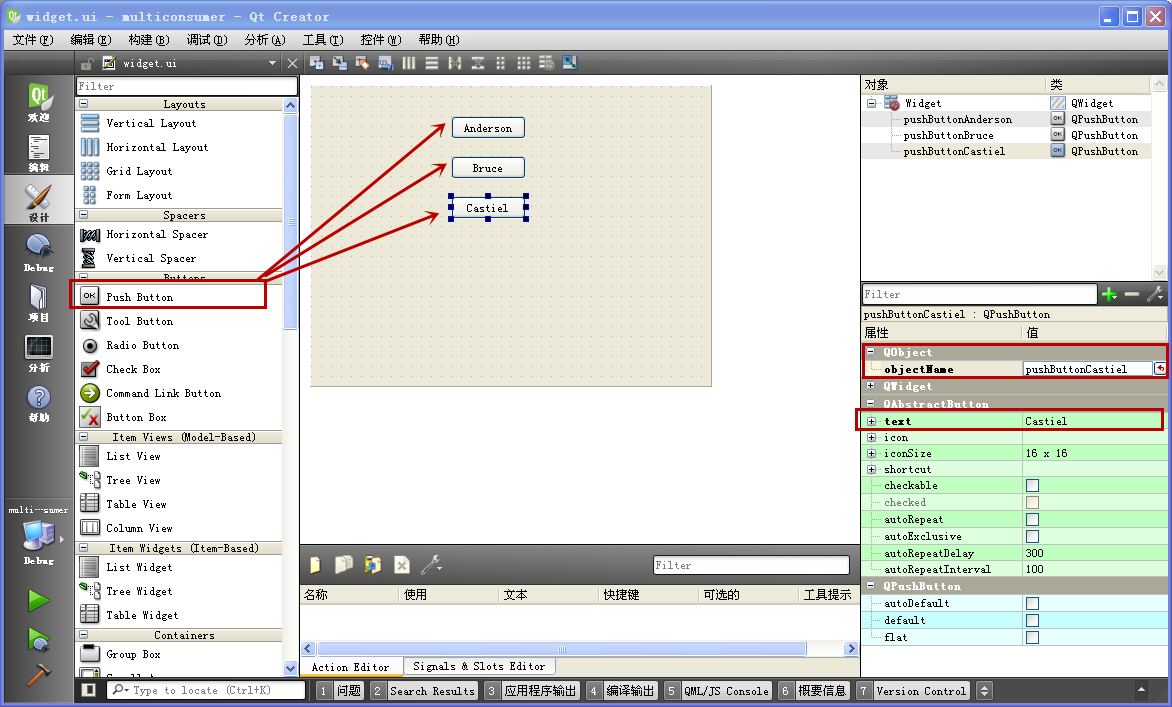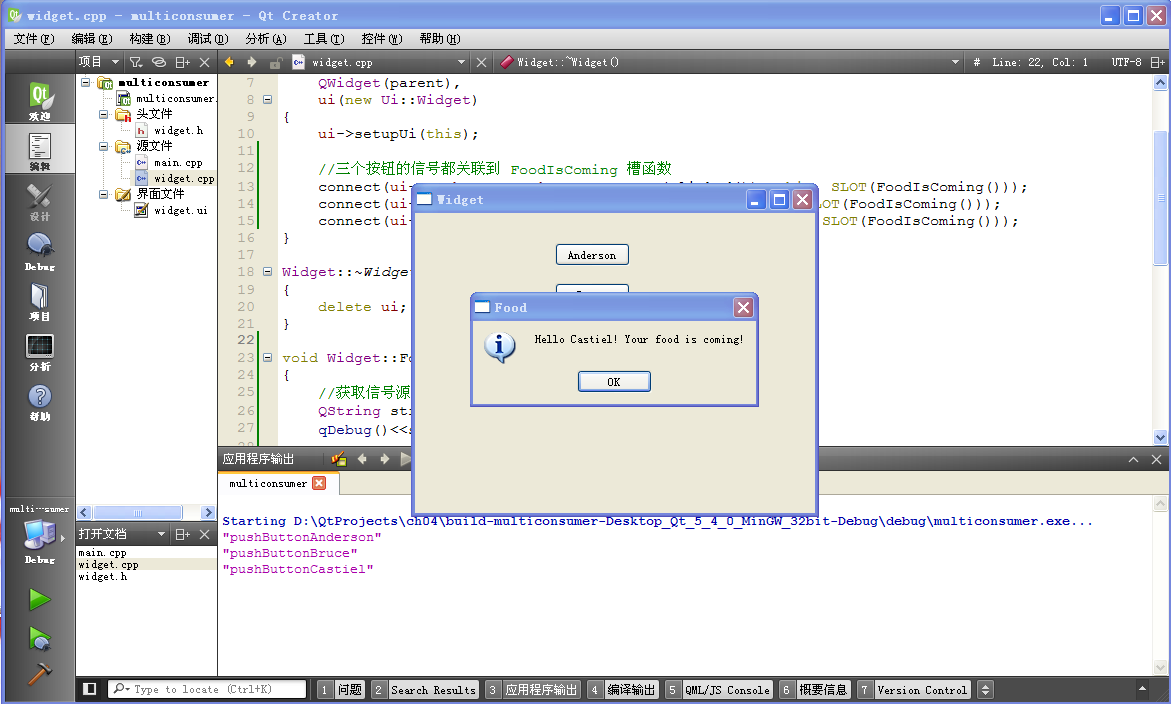三个顾客 Anderson、Bruce、Castiel 都要订饭,分别对应三个按钮,点击一个按钮,就会弹出给该顾客送饭的消息。注意这个例子只使用一个槽函数,而三个顾客名称是不一样的,弹窗时显示的消息不一样,这需要一些 技巧,下面我们开始这个示例的学习。

编辑好界面之后保存。这样三个信号的源头就设置好了,下面需要编写接收它们信号的槽函数。我们回到 QtCreator 的代码编辑模式,打开头文件 widget.h,向类里添加槽函数声明:
cpp
#ifndef WIDGET_H
#define WIDGET_H
#include <QWidget>
namespace Ui {
class Widget;
}
class Widget : public QWidget
{
Q_OBJECT
public:
explicit Widget(QWidget *parent = 0);
~Widget();
public slots: //添加槽函数进行弹窗
void FoodIsComing();
private:
Ui::Widget *ui;
};
#endif // WIDGET_HFoodIsComing 就是我们需要添加的槽函数,添加好声明之后,下面再向 widget.cpp 添加代码:
cpp
#include "widget.h"
#include "ui_widget.h"
#include <QMessageBox>
#include <QDebug>
Widget::Widget(QWidget *parent) :
QWidget(parent),
ui(new Ui::Widget)
{
ui->setupUi(this);
//三个按钮的信号都关联到 FoodIsComing 槽函数
connect(ui->pushButtonAnderson, SIGNAL(clicked()), this, SLOT(FoodIsComing()));
connect(ui->pushButtonBruce, SIGNAL(clicked()), this, SLOT(FoodIsComing()));
connect(ui->pushButtonCastiel, SIGNAL(clicked()), this, SLOT(FoodIsComing()));
}
Widget::~Widget()
{
delete ui;
}
void Widget::FoodIsComing()
{
//获取信号源头对象的名称
QString strObjectSrc = this->sender()->objectName();
qDebug()<<strObjectSrc; //打印源头对象名称
//将要显示的消息
QString strMsg;
//判断是哪个按钮发的信号
if( "pushButtonAnderson" == strObjectSrc )
{
strMsg = tr("Hello Anderson! Your food is coming!");
}
else if( "pushButtonBruce" == strObjectSrc )
{
strMsg = tr("Hello Bruce! Your food is coming!");
}
else if( "pushButtonCastiel" == strObjectSrc )
{
strMsg = tr("Hello Castiel! Your food is coming!");
}
else
{
//do nothing
return;
}
//显示送餐消息
QMessageBox::information(this, tr("Food"), strMsg);
}